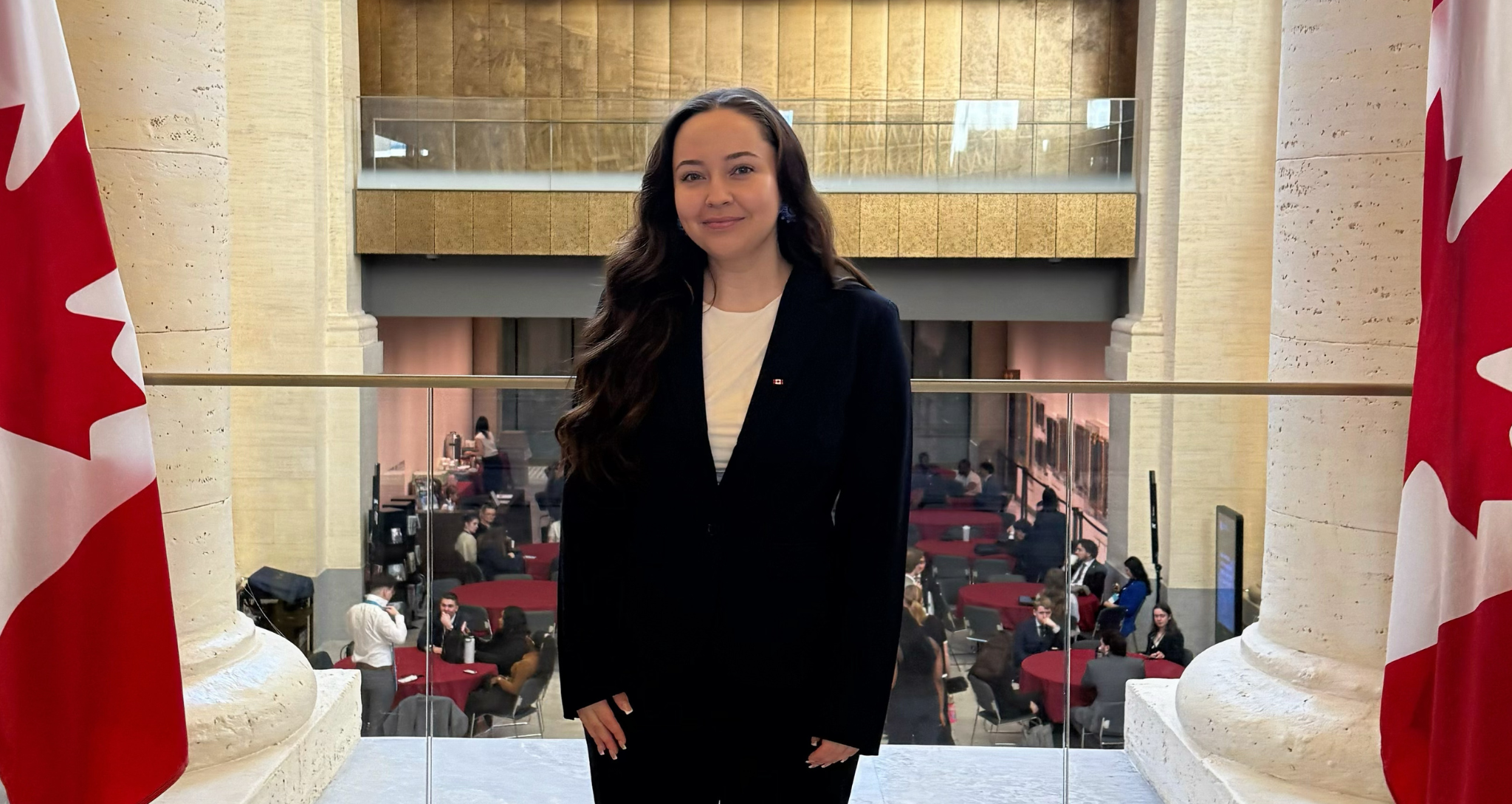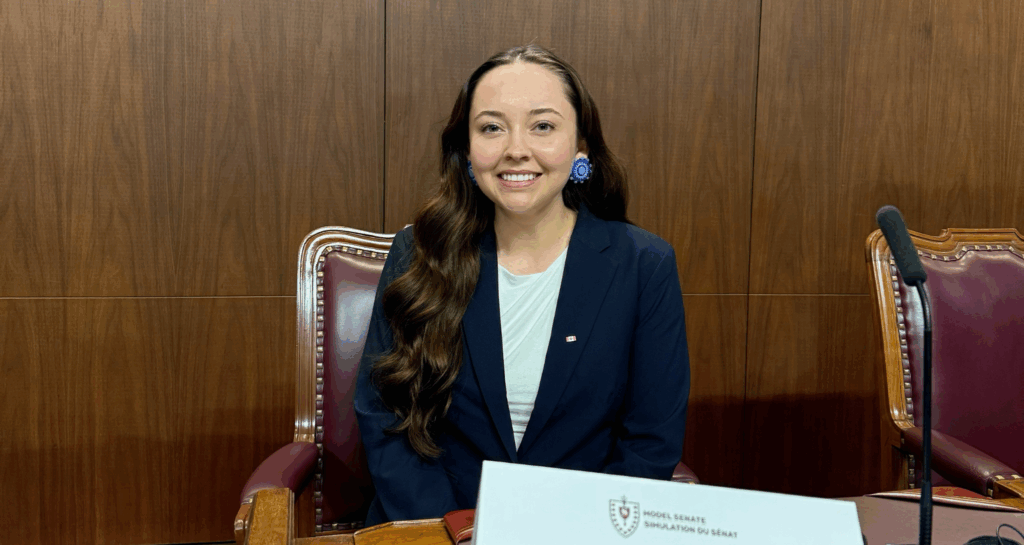U of T undergrad passionate about Indigenous governance heads to Oxford this summer

By: Tina Adamopoulos
University of Toronto undergraduate student Claudia Miller is building a career at the intersection of law, governance and Indigenous self-determination – and she’s already making her mark.
Miller, who is from Six Nations of the Grand River Territory, has been an analyst with the Reconciliation, Treaties and Engagement Branch at the department of Canadian Heritage since 2023. In her role, she supports modern treaty negotiations between the federal government and First Nations.
“I want to do as much as I can to advance self-government and self-determination for Indigenous groups and governments,” says Miller, a fourth-year political science student with a double minor in history and Canadian studies, and a member of New College.
In August, Miller will travel to the University of Oxford as a recipient of the 2025 Summer Abroad Inclusion, Diversity and Excellence (EDI) Award. There, she will take the course Work and the British Industrial Revolution, which will broaden her understanding of institutional history and offer a global perspective on governance and systemic inequality.
The opportunity is made possible by two additional funding supports: the First Nations House Bursary, awarded to Indigenous undergraduate or graduate students with demonstrated financial need, and the International Experience Award, offered by the Centre for International Experience.
Her interest in studying abroad was sparked by two courses at U of T, an Indigenous politics course taught by Riley Yesno, a course instructor in the political science department, and “Unpacking Political Systems: Institutions and Behavior in Comparative Perspective” another course taught by Randall Hansen, a professor in the department of political science.
“I hope to gain a different perspective on England and how its history affects our system and Indigenous people here,” Miller says. “I’m interested in how the Industrial Revolution and its legacy can be applied to Indigenous history in Canada.”
As she prepares for Oxford, Miller also has sights on law school. Her passion for the field took root in her first job as a justice intern with the Mississaugas of the Credit First Nation’s governance department. There, she helped develop and implement its Restorative Justice program and conducted research in support of Indigenous data sovereignty, policing and law enforcement.
At Canadian Heritage, Miller contributed to the department-wide Reconciliation Action Plan, which is now being used and implemented. The plan focuses on learning, education and partnerships to support and advance reconciliation in Canada. She also helped develop its Deputy Minister Award for Reconciliation, which recognizes staff members who demonstrate a strong commitment to reconciliation.
“Working in government while in school isn’t always easy in terms of time management, but I got really lucky to be surrounded by good people who support my growth and studies,” Miller says.

This March, Miller participated in the Senate of Canada’s Model Senate, where she learned about parliamentary procedures. She joined discussions with the Indigenous Peoples Standing Committee about a bill supporting Indigenous self-governance in the sale and production of cannabis. Another highlight of the experience was speaking with Senator Brian Francis about Indigenous self-government.
“It was out of my comfort zone to speak in front of 150 people, including senators,” Miller says. “But it gave me a deeper understanding of political science. Talking with senators and staff helped me better understand the system.”
With a strong foundation in public service, community engagement and academic achievement, Miller is now focused on what comes next.
“I want to go to law school – hopefully at U of T – because of how much I love the First Nations House staff and services I was able to access here,” she says. “There’s been so many advancements in my life because of it.”

